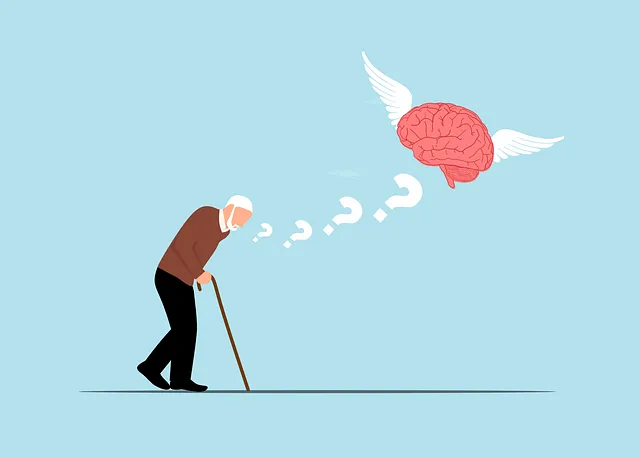Media representation of mental health significantly influences public perception and treatment of individuals with mental illness. Inaccurate or stereotypical portrayals contribute to stigma, discrimination, and discourage help-seeking behaviors. The 2018 report by the Kaiser Permanente mental health center in Highlands Ranch highlighted disparities in media depiction, emphasizing the need for more nuanced storytelling. Cultural sensitivity in mental healthcare is crucial, with diverse perspectives enhancing treatment effectiveness. Kaiser Permanente Highlands Ranch breaks down barriers and challenges stigma through innovative initiatives, education, and community outreach programs focused on resilience building and stress management. Partnerships between media entities and healthcare providers like Kaiser Permanente promote accurate representations of mental health conditions, foster understanding, and reduce stigma, integrating positive messaging into narratives for a supportive community.
Mental illness representation in media significantly influences public perception of mental health. This article explores how entities like Kaiser Permanente’s mental health center in Highlands Ranch are challenging stigma through innovative approaches. We delve into the current state, understanding the impact of media, and present strategies for collaboration between media outlets and communities to foster more accurate and positive portrayals of mental illness. By examining these initiatives, we aim to enhance awareness and reduce stereotypes associated with mental health.
- Understanding the Impact of Media Representation on Mental Health Perception
- The Current State: How Kaiser Permanente Highlands Ranch Addresses Stigma
- Innovative Solutions to Enhance Positive Mental Illness Portrayal
- Strategies for Media and Community Collaboration in Challenging Stereotypes
Understanding the Impact of Media Representation on Mental Health Perception

Media representation plays a pivotal role in shaping public perception about mental health. The way mental illness is depicted in films, television shows, and other media platforms can significantly influence how society understands and treats individuals struggling with these conditions. Studies have shown that inaccurate or stereotypical portrayals can lead to stigma, discrimination, and even discourage those in need from seeking help. For instance, a 2018 report by the Kaiser Permanente mental health center in Highlands Ranch highlighted the disparities in media representation of various disorders, emphasizing the importance of more nuanced and accurate storytelling.
Cultural sensitivity in mental healthcare practice is closely tied to these representations. The Mental Wellness Podcast Series Production often discusses the impact of diverse perspectives and experiences on treatment effectiveness. By promoting emotional intelligence and understanding through media, we can foster a more supportive environment for those dealing with mental health issues. This approach not only challenges stereotypes but also encourages open conversations about mental wellness, potentially reducing barriers to access quality care, such as that offered at the Kaiser Permanente center in Highlands Ranch.
The Current State: How Kaiser Permanente Highlands Ranch Addresses Stigma

Kaiser Permanente Highlands Ranch, a renowned mental health center, is at the forefront of challenging the stigma surrounding mental illness through innovative initiatives. They recognize that destigmatization starts with understanding and education, which has led to the development of comprehensive programs aimed at both their patient community and the wider public.
The center actively engages in Community Outreach Program Implementation, bringing mental health services and awareness directly to local communities. Their approach focuses on resilience building and stress management techniques, empowering individuals to take control of their mental well-being. By offering these resources, Kaiser Permanente Highlands Ranch facilitates open conversations about mental illness, fostering an environment where people feel comfortable seeking help without fear of judgment or discrimination.
Innovative Solutions to Enhance Positive Mental Illness Portrayal

In recent years, there has been a growing awareness of the need for more accurate and positive representation of mental illness in media. Innovative solutions are emerging, such as partnerships with renowned health institutions like the Kaiser Permanente mental health center in Highlands Ranch. These collaborations bring together medical expertise and creative storytelling to portray mental health struggles in a nuanced light. By involving professionals who provide Trauma Support Services, the media industry can ensure that stories not only entertain but also educate audiences about the realities of living with mental illness.
The integration of stress management techniques and depression prevention strategies into narrative arcs can further enhance these portrayals. By showcasing characters who navigate their mental health journeys while also embracing self-care practices and seeking professional support, media can challenge stigma and foster empathy. This shift in representation empowers viewers by demonstrating that mental illness is a manageable condition, offering hope for those who may be struggling silently.
Strategies for Media and Community Collaboration in Challenging Stereotypes

Media organizations play a pivotal role in shaping public perceptions about mental health and illnesses. To challenge stereotypes, collaborative efforts between media entities and healthcare providers like Kaiser Permanente mental health center Highlands Ranch are essential. By joining forces, they can ensure accurate representation of various mental health conditions, promote understanding, and reduce the stigma associated with seeking help. This collaboration involves sharing insights, providing expert consultations during production, and co-creating content that showcases diverse recovery narratives.
A key strategy is integrating cultural competency training for media professionals, which equips them to handle sensitive topics with nuance. Additionally, healthcare providers can contribute real-world expertise, suggesting relatable scenarios and accurate portrayals. Such partnerships not only foster an environment conducive to positive mental health messaging but also offer valuable anxiety relief and burnout prevention strategies for both creators and viewers, fostering a supportive ecosystem within the community.
Media representation plays a pivotal role in shaping public perception about mental illness. By showcasing accurate, empathetic, and diverse portrayals, we can foster understanding and reduce stigma. The strategies outlined, including collaboration between media outlets and community mental health centers like Kaiser Permanente’s Highlands Ranch facility, offer promising solutions to enhance positive mental illness representation. Through these efforts, we can create a more inclusive society where individuals with mental health challenges are supported rather than stigmatized.






